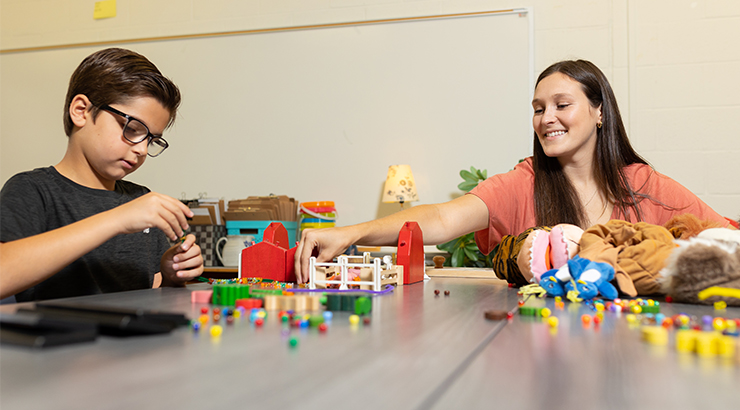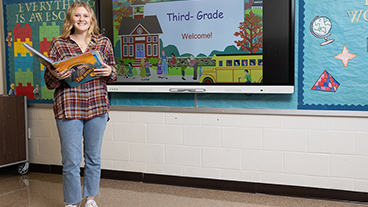
Elementary, Middle Level, Library & Technologies Education
Early Childhood Education Degree, Pre-K-4
Become the elementary school teacher students never forget.
Quick Look
OFFERED AS:
Major
FORMAT:
In-Person
CREDITS REQUIRED:
120
Earn your early childhood education degree in Pre-K-4 from one of the best colleges for education in Pennsylvania, according to Niche.
Here at Kutztown University, we’re committed to diversity, equity and inclusion in your classes and your future classroom. Becoming an early childhood education major at KU will allow you to:
- Get on-site student teaching experience
- Earn a teaching certification in Pre-K-4
- Lead your own classroom before graduation
- Be ready for a life-changing career
Why Choose KU for an Early Childhood Education Degree
Kutztown University is what students call their “home away from home.” From strong educational training and student teaching to learning how to support a child’s academic journey, your future classroom begins here.
We have helped thousands of students become teachers for more than 100 years. We welcome students from different backgrounds and will help you turn your degree in elementary education into an impactful teaching career.

Early Elementary Education Degree Highlights
Our early childhood education program prepares future educators like you to teach infants, toddlers, preschoolers, kindergarteners and students in grades one through four.
Program Highlights:
- Become a well-versed leader in early childhood education
- Learn how to build a safe, inclusive and welcoming classroom environment
- Develop strong professional speaking skills
- Learn to teach subjects like language arts, math, science, social studies
- Apply your coursework as a student teacher
- Train with classroom technology, such as smartboards, coding, robots, VR
- Get access to State Testing Requirements for Pre-K-4
Student Learning Outcomes
I recommend Kutztown University’s education program because of the networking incorporated into the program. We were given opportunities for school observations early in the program and interview workshops with local school administrators. These connections helped me find my current teaching job.
Karrison Dubbs ‘23, Elementary School Teacher, Pottsville School District





